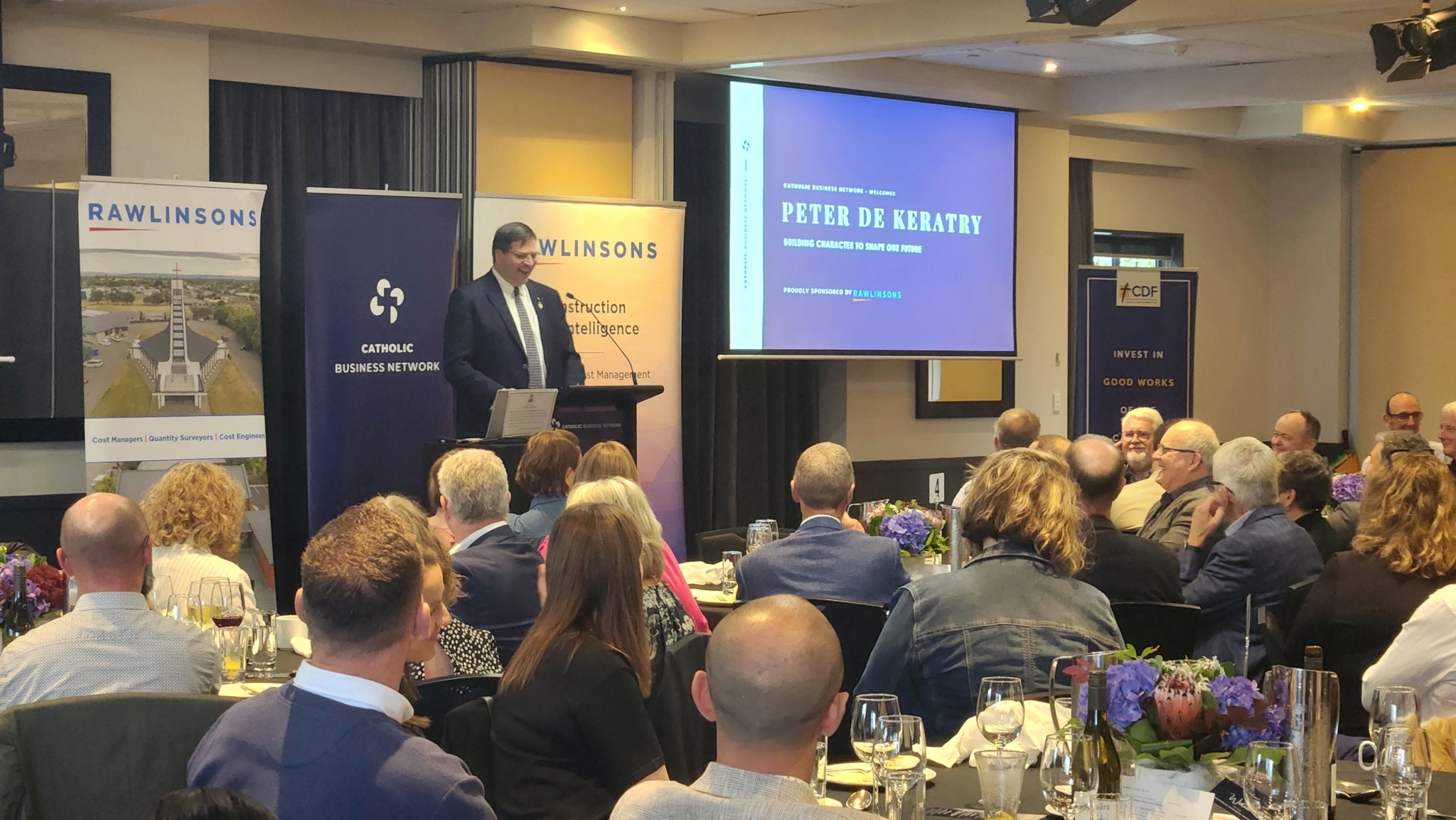Ordinary People Doing Extraordinary Things
How Time, Talent, and Treasure Can Create Local Impact
The Oklahoma City Memorial Marathon is more than just a race—it’s a powerful tribute to resilience, unity, and the enduring human spirit. Known as “The Run to Remember”, this annual event honours the 168 lives lost in the 1995 bombing and celebrates a community that chose hope over despair.
Launched in 2001 by Oklahoma City businessmen Thomas Hill, Chet Collier, and David Hill, the marathon has grown into a world-class, community-led
event. What began as a solemn act of remembrance has become a beacon
of purpose, healing, and action. It’s
a reminder that extraordinary things happen when ordinary people respond to a need—with their time, their talent, and, when needed, their treasure.
At the recent Catholic Business Network (CBN) luncheon, keynote speaker Peter de Keratry challenged the 135 guests present to consider their own role in creating change within the communities they serve. “Whose job is it to help?”
he asked.
The answer, he suggested, lies not in waiting for others—but in realising that we are the ones we’ve been waiting for. Like the Oklahoma City founders, we are called to bring full hearts and purposeful action to the places and people that need us most.
Peter reminded us that the desire to give is instinctive—embedded in who we are. Reflecting on the Christchurch Diocese’s upcoming fundraising campaigns, he proposed that sometimes, a donor’s need to give is greater than an organisation’s need to receive. And giving isn’t limited to money. Time, skills, and energy are often just as valuable—and sometimes even more impactful.

The story behind the marathon is a powerful example of what happens when people listen to that inner call—not for recognition, but to uplift others. It’s a call we all receive, in different ways.
So how do we respond?
Peter believes we are all leaders—in our homes, our workplaces, and our communities. Each of us carries unique gifts that can be used to serve others. Whether it’s offering your time to a cause, sharing your professional expertise, or supporting a local initiative financially, every act counts. Giving shouldn’t be what we do after life’s demands are met—it should be part of how we live.
He closed with a challenge rooted in faith:
“What are our talents? What can we accomplish? Can we return what God has given us?”
As guests reflected on the powerful example of the marathon, many left inspired to think not just about the big, public moments of generosity, but the quiet, daily choices to give, lead, and love.
Thanks to Rawlinsons, our sponsor for this event.
